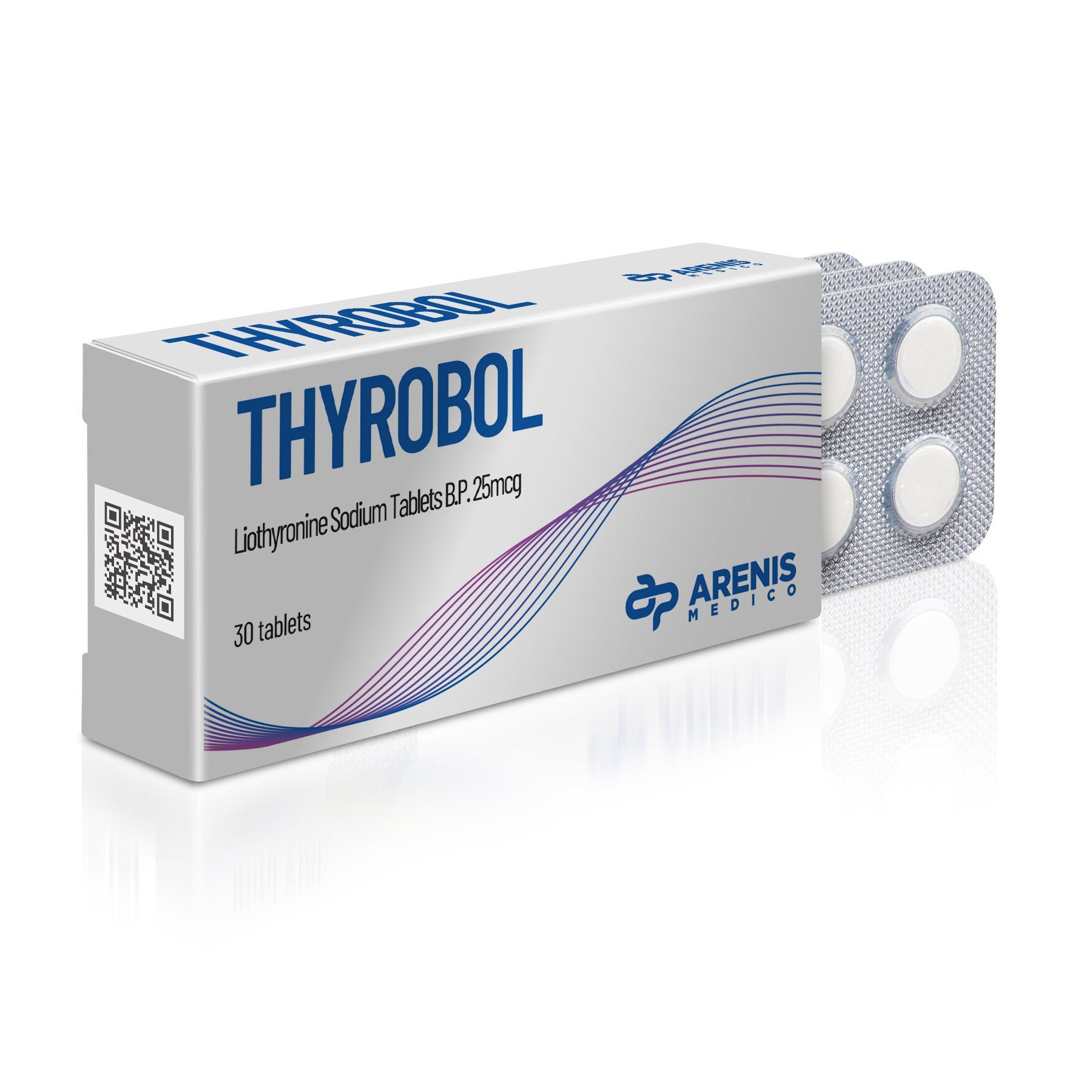Thyrobol
Thyrobol (Liothyronine sodium) is a synthetically manufactured prescription thyroid hormone. Thyroid hormones stimulate basal metabolic rate, and are involved with many cellular functions including protein, fat, and carbohydrate metabolism. Thyrobol (Liothyronine sodium) is used medically to treat hypothyroidism, a condition where the thyroid gland does not produce sufficient levels of thyroid hormone.
Side Effects
Side effects are generally associated with overdosage, and may include headache, irritability, nervousness, sweating, irregular heartbeat, increased bowel motility, or menstrual irregularities.
Overdosage may also induce shock, and may aggravate or trigger angina or congestive heart failure. Chronic overexposure to Thyrobol (Liothyronine sodium) will produce symptoms normally associated with hyperthyroidism or the overproduction of natural thyroid hormones in the body.
The occurrence of overexposure-linked side effects is normally cause to immediately reduce or discontinue therapy with Thyrobol (Liothyronine sodium). Acute massive overdose may be life threatening.
Administration
When used to treat mild hypothyroidism, the typical recommended starting dosage is 1 tablet (25 mcg Liothyronine sodium) daily. The daily dosage then may be increased by no more than 1 tablet (25 mcg Liothyronine sodium) every 1 to 2 weeks. The established maintenance dose is usually 1-3 tablets (25-75 mcg Liothyronine sodium) per day. Once a day administration of the full daily dose is usually recommended. Although Thyrobol (Liothyronine sodium) is fast acting, its effects may persist in the body for several days after discontinuance.
Cycles of Thyrobol (Liothyronine sodium) usually last no longer than 6 weeks, and administration of the drug should not be halted abruptly. Instead, it is discontinued in the same slow manner in which it was initiated. This usually entails reducing the dosage by 1 tablet (25 mcg Liothyronine sodium) every 4 to 7 days. This tapering is done so that the body has time to readjust its endogenous hormone production at the conclusion of therapy, and to avoid the onset of side effects.
